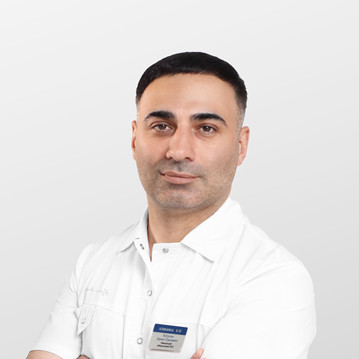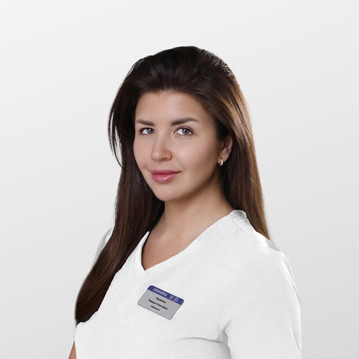Cryopreservation

specialists

equipment

treatment
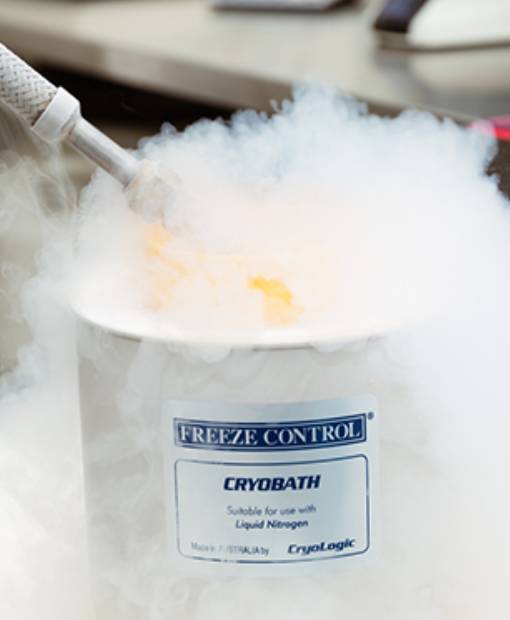
The clinic for reproductive medicine K+31 in Moscow uses only modern, safe cryopreservation technologies. Vitrification (quick freezing) makes it possible to avoid the process of crystallization of biological fluids and ensures their transition to a vitreous state, which allows preserving embryos for many years. Their survival after defrosting is almost 100%, and further development has no differences from "fresh" embryos. Thus, a cryoprotocol (cryotransfer) is usually used after a failed IVF.
Cryotransfer is one of the most advanced and modern methods of infertility treatment. It is used when conventional IVF procedures fail, or when a child is planned to be born in the future.
Cryotransfer is an advanced IVF method with frozen embryo transfer.
What is germ cell cryopreservation by vitrification method?
This is a very fast cryopreservation (freezing) of oocytes, embryos, sperm or other biomaterial in liquid nitrogen. At the same time, the biological material is pre-treated with a special substance - a cryoprotectant. This substance prevents the formation of ice crystals that are detrimental to sperm and egg cells. All biochemical processes in cells stop, and this property contributes to the fact that they can be stored for decades. After defrosting of the biological material, the vital activity of oocytes and spermatozoa returns to the previous level and their quality does not fall.
Cryopreservation of sperm is a reliable and safe freezing method for germ cells, which allows you to save sperm for decades. Cryopreservation of eggs is carried out by the same method of ultra-fast freezing using a cryoprotectant as cryopreservation of spermatozoa.
The procedure allows even those who suffer from infertility or other diseases, as well as older couples, parents who work in hazardous industries or who are facing aggressive treatment, to have children. Donor cells undergo cryopreservation.
Other services of our clinic include: storage and transportation of biomaterial (eggs, sperm, embryos), various IVF programs, IVF cryoprotocol, infertility treatment (both female and male infertility), treatment of diseases of the reproductive system, programs for donors and surrogate motherhood and others, including with the use of assisted reproductive technologies (ART).
Call to schedule a consultation of a fertility specialist in Moscow (costs from 4000 rubles), or leave your phone number on the site, request a call back, our specialists will call you back and will answer all questions.
Sperm cryopreservation
Sperm freezing is appropriate in cases where:
- A procedure or treatment is pending that will adversely affect spermatozoa and reproductive function.
- A man works in a hazardous industry (under conditions of extreme temperatures, contact with harmful substances, etc.).
- The man has decided to become a sperm donor.
Before sperm freezing, a man needs to take a blood test for antibodies to HIV and syphilis, for hepatitis B and C and pass a biomaterial, which will then be tested for fertility (spermogram).
Cryopreservation of eggs
If a woman for some reason wants to delay pregnancy, despite the fact that fertility decreases every year, she can keep her “young” oocytes until more suitable times. Egg freezing is also used to:
- use them later for IVF;
- undergo a treatment (such as chemotherapy or radiation therapy) that will damage the oocytes;
- preserve the eggs, which are rapidly deteriorating due to the health of the woman;
- become an oocyte donor.
Before cryopreservation, you need to undergo an examination by several doctors (depending on the indications and health status) and several studies: make an ultrasound of the mammary glands, pelvic organs and abdominal cavity, thyroid gland, take blood tests for diseases, tumor markers and hormones, swabs for infections. And shortly before egg retrieval, you need to switch to a healthy lifestyle, eliminate bad habits and stress. Then ovulation stimulation, follicle puncture and vitrification (freezing) of oocytes are carried out.
Embryo cryopreservation
Embryos that were obtained for IVF, but were not used, are frozen. Sometimes parents save them for future attempts in case the first one fails or, to have another child, and sometimes donated. All necessary examinations and analyzes include those that future parents undergo before IVF. After defrosting, the condition of each embryo must be assessed.
The probability of having a healthy baby with IVF with frozen eggs, sperm or embryos is approximately the same as with physiological insemination. Our medical center provides reliable storage of cryopreserved biomaterials in a modern high-tech cryobank, in which the risk of damage cells are kept to a minimum.
In vitro fertilization is the process of conception in artificially created conditions, followed by the implantation of embryos that have reached a certain stage of development, into the uterine cavity. Only for 30% of women the first attempt ends with a long-awaited pregnancy. Cryotransfer is an advanced IVF method, the main difference of which is the transfer of frozen embryos. As a result, the chances of conception increase significantly and reach up to 70%.
The essence of the IVF method with cryotransfer
As a rule, several high-quality embryos are obtained during the first in vitro fertilization attempt. Since it is not recommended to implant more than two embryos at the same time, the remaining ones are frozen for future use.
Services

Embryo cryotransfer has the following advantages:
- the ability to analyze and take into account the causes of previous failures;
- no need for hormonal stimulation;
- the use of medicines only for the preparation of the endometrium;
- the possibility of synchronizing the state of the uterus with the stage of embryo development;
- the absence of a follicular puncture procedure that injures ovarian tissue;
- embryo implantation can be carried out at the right time for the woman;
- relatively low cost by reducing the number of drugs.
Cryoprotocols more often end in pregnancy also because only the highest quality embryos are selected for freezing at the initial stage.
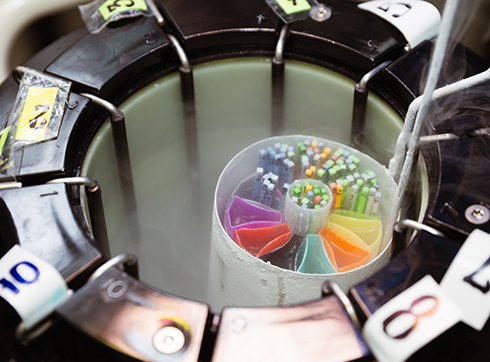
Preparation for the cryoprotocol at the K + 31 clinic includes the following steps:
There are three types of cryotransfer practiced at the K+31 clinic:
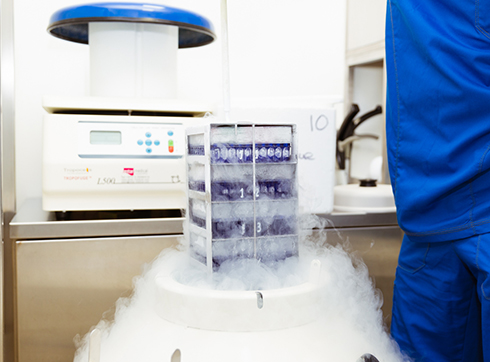
The most sparing procedure for the female body is cryo in a natural cycle, since there is no need to take hormonal drugs. The doctor conducts ultrasound monitoring of the thickness of the endometrial layer and the growth of the follicle. At a certain stage, ovulation triggers are introduced and after a few days (from 3 to 5) the embryo is transferred to the uterus. This regimen is recommended for patients with a stable menstrual cycle and healthy ovulation.
The HRT protocol is carried out for women with ovarian dysfunction. Its goal is to create an artificial hormonal cycle, which should lead to an increase in the required thickness of the endometrium. When it becomes more than 9 mm, the doctor prescribes drugs to prepare the uterus for implantation. Usually, the transfer occurs on the 5th day after the start of these drugs.
Cryotransfer in a stimulated cycle involves the activation of ovulation by small doses of gonadotropin hormones. The procedure is recommended for patients with insufficient endometrial thickness formed in the natural cycle. When the follicles reach 18-20 mm, an injection of gonadotropin is prescribed and on the 4-5th day the embryo is implanted into the uterine cavity.
As specialists of the K+31 clinic note, the effectiveness of cryotransfer does not depend on the chosen scheme. The technique is selected in accordance with the individual characteristics of the organism.
If you look at the reviews of our patients who underwent IVF according to the cryoprotocol, we can note a large number of positive ones among them. At the same time, special attention is paid to a careful attitude to the female body and to the preservation by doctors of the possibility of becoming pregnant in the future.
A positive result from treatment can only be obtained by seeking professional help. Self-acting can be hazardous to health.
Our advantages:
- Latest technologies, advanced equipment and modern methods of treatment.
- Reproductologists and embryologists of the highest category.
- Own laboratories and cryobank, efficient biomaterial storage technologies.
- Wide range of ART programs
- A full range of services from infertility treatment and artificial insemination to pregnancy and childbirth.
- A comfortable hospital with all conditions for future parents.
If you decide to have a child, please contact our clinic in Moscow. Call or leave a request for a call back on the site. We will help you every step of the way on this difficult path to motherhood.
Price
Make an appointment at a convenient time on the nearest date
Our doctors

This award is given to clinics with the highest ratings according to user ratings, a large number of requests from this site, and in the absence of critical violations.

This award is given to clinics with the highest ratings according to user ratings. It means that the place is known, loved, and definitely worth visiting.

The ProDoctors portal collected 500 thousand reviews, compiled a rating of doctors based on them and awarded the best. We are proud that our doctors are among those awarded.

